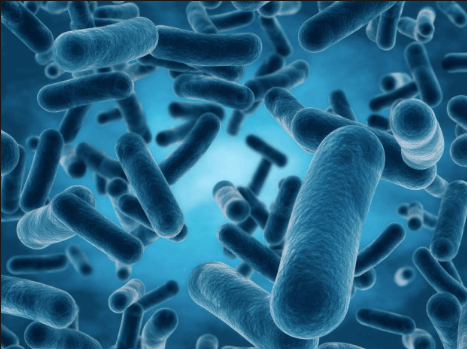

We know intuitively there is a relationship between our gut and our brain. We say things like “trust your gut.” We get butterflies in our stomach when we are nervous and some of us are prone to overeating when we feel stressed. All these signs point to a complex relationship that we are just beginning to better understand. For the majority of human existence we had no idea about the invisible little microbes that live on us and in us. I’m referring to the trillions and quadrillions of microbes with their own DNA like bacteria, viruses, funghi among other organisms that have coexisted and evolved with us from the dawn of our species and with every individual person from the moment they start being born. The first microbes pass on to a baby during birth from the mother and it’s not for a few years until mature microbial ecosystems develop throughout the body—from the inside of our mouths to all across our skin. The gut alone has a thousand plus species that interact with each other and with other critical features in our body like our immune system and nervous system—hence the relationship to our health and the communication with our brain. We know our cells and DNA have a relationship to our health, and bacteria outnumber our cells 10 to 1. This suggests there could be a significant impact of the microbiome to our health that deserves to be understood and studied. In fact our gut does impact our physical and mental health. Studies with sterile mice have shown increased recklessness, forgetfulness and links to depression and anxiety. Studies have also found links to chronic and acute disease states like obesity and depression. The gut acts as a chemical or drug lab that affects the brain. In fact, 90% of serotonin is produced in the gut! Early research is also finding links to significant disease states like autism, colon cancer, Parkinson’s, and Alzheimer’s to name a few.
Everyone is unique and there isn’t a single, ideal microbiome composition. What is a healthy ecosystem for one person may not have the same impact on another. Each of us has critically functioning microbes as well as microbes that don’t do anything, but the fact they take up space is important. Then there are the “good” versus “bad” bacteria, which aren’t always the same in type or number for the host. More important than the specific microbes is the makeup of our individual ecosystems—ecosystems that are in flux from what we eat, to where we travel, to what infections we get, to what medicines we take, and to how all that changes over time. It’s not surprising that our microbiome’s relationship to our unique, overall health is complex.
There are some interesting findings worth sharing following research into switching microbiomes across host organisms. Studies in mice and humans have shown that fecal transplants to replace a microbiome can work to restructure someone’s ecosystem that was overrun by specific bad bacteria, but with that can come existing issues or conditions from the donor. One mother had her microbiome replaced by her overweight daughter’s microbiome and she later gained weight as a consequence. This suggests that there are some really intricate roles the microbiome plays in relation to the rest of the host’s body that may not be immediately observable, but can manifest in time.
A balanced microbiome is critical in preventing and fighting disease. We don’t want to annihilate our microbiome by being too sterile, or through antibiotics. Losing our microbiome is akin to losing a vital internal organ like a liver or a kidney. But unlike a liver or kidney, we can change the composition of our microbiome through what we eat. Eventually, the current costly tech options will scale and become more accessible making tailored precision nutrition, medicine and healthcare a reality. But for now, maintaining a balanced ecosystem through appropriate nutrition is the key. There isn’t a universal reason to supplement nutritional intake with pro or prebiotics just because, and in many cases it may actually be harmful depending on the microbiome makeup. The most critical takeaway is to limit the consumption of antibiotics whenever possible both as medicine (unless absolutely necessary) and through their presence in foods consumed. Antibiotics indiscriminately wipe out good and bad bacteria and can cause even worse problems from this kind of eradication. Not only can it make future infections resistant to antibiotic treatment, it can disrupt the critical roles the microbiome plays for the body in overall health and communications with the brain. We must remember, we are not alone and the decisions we make about the food and medicine we take ingest also impacts the quadrillions of critters hanging out with us all the time.